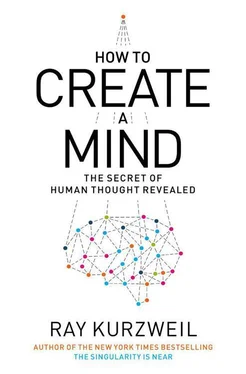Perceptions of consciousness also often affect our judgments in controversial areas. Looking at the abortion issue again, many people make a distinction between a measure like the morning-after pill, which prevents the implantation of an embryo in the uterus in the first days of pregnancy, and a late-stage abortion. The difference has to do with the likelihood that the late-stage fetus is conscious. It is difficult to maintain that a few-days-old embryo is conscious unless one takes a panprotopsychist position, but even in these terms it would rank below the simplest animal in terms of consciousness. Similarly, we have very different reactions to the maltreatment of great apes versus, say, insects. No one worries too much today about causing pain and suffering to our computer software (although we do comment extensively on the ability of software to cause us suffering), but when future software has the intellectual, emotional, and moral intelligence of biological humans, this will become a genuine concern.
Thus my position is that I will accept nonbiological entities that are fully convincing in their emotional reactions to be conscious persons, and my prediction is that the consensus in society will accept them as well. Note that this definition extends beyond entities that can pass the Turing test, which requires mastery of human language. The latter are sufficiently humanlike that I would include them, and I believe that most of society will as well, but I also include entities that evidence humanlike emotional reactions but may not be able to pass the Turing test—for example, young children.
Does this resolve the philosophical question of who is conscious, at least for myself and others who accept this particular leap of faith? The answer is: not quite . We’ve only covered one case, which is that of entities that act in a humanlike way. Even though we are discussing future entities that are not biological, we are talking about entities that demonstrate convincing humanlike reactions, so this position is still human-centric. But what about more alien forms of intelligence that are not humanlike? We can imagine intelligences that are as complex as or perhaps vastly more complex and intricate than human brains, but that have completely different emotions and motivations. How do we decide whether or not they are conscious?
We can start by considering creatures in the biological world that have brains comparable to those of humans yet evince very different sorts of behaviors. British philosopher David Cockburn (born in 1949) writes about viewing a video of a giant squid that was under attack (or at least it thought it was—Cockburn hypothesized that it might have been afraid of the human with the video camera). The squid shuddered and cowered, and Cockburn writes, “It responded in a way which struck me immediately and powerfully as one of fear. Part of what was striking in this sequence was the way in which it was possible to see in the behavior of a creature physically so very different from human beings an emotion which was so unambiguously and specifically one of fear.” 5 He concludes that the animal was feeling that emotion and he articulates the belief that most other people viewing that film would come to the same conclusion. If we accept Cockburn’s description and conclusion, then we would have to add giant squids to our list of conscious entities. However, this has not gotten us very far either, because it is still based on our empathetic reaction to an emotion that we recognize in ourselves. It is still a self-centric or human-centric perspective.
If we step outside biology, nonbiological intelligence will be even more varied than intelligence in the biological world. For example, some entities may not have a fear of their own destruction, and may not have a need for the emotions we see in humans or in any biological creature. Perhaps they could still pass the Turing test, or perhaps they wouldn’t even be willing to try.
We do in fact build robots today that do not have a sense of self-preservation to carry out missions in dangerous environments. They’re not sufficiently intelligent or complex yet for us to seriously consider their sentience, but we can imagine future robots of this sort that are as complex as humans. What about them?
Personally I would say that if I saw in such a device’s behavior a commitment to a complex and worthy goal and the ability to execute notable decisions and actions to carry out its mission, I would be impressed and probably become upset if it got destroyed. This is now perhaps stretching the concept a bit, in that I am responding to behavior that does not include many emotions we consider universal in people and even in biological creatures of all kinds. But again, I am seeking to connect with attributes that I can relate to in myself and other people. The idea of an entity totally dedicated to a noble goal and carrying it out or at least attempting to do so without regard for its own well-being is, after all, not completely foreign to human experience. In this instance we are also considering an entity that is seeking to protect biological humans or in some way advance our agenda.
What if this entity has its own goals distinct from a human one and is not carrying out a mission we would recognize as noble in our own terms? I might then attempt to see if I could connect or appreciate some of its abilities in some other way. If it is indeed very intelligent, it is likely to be good at math, so perhaps I could have a conversation with it on that topic. Maybe it would appreciate math jokes.
But if the entity has no interest in communicating with me, and I don’t have sufficient access to its actions and decision making to be moved by the beauty of its internal processes, does that mean that it is not conscious? I need to conclude that entities that do not succeed in convincing me of their emotional reactions, or that don’t care to try, are not necessarily not conscious. It would be difficult to recognize another conscious entity without establishing some level of empathetic communication, but that judgment reflects my own limitations more than it does the entity under consideration. We thus need to proceed with humility. It is challenging enough to put ourselves in the subjective shoes of another human, so the task will be that much harder with intelligences that are extremely different from our own.
What Are We Conscious Of?
If we could look through the skull into the brain of a consciously thinking person, and if the place of optimal excitability were luminous, then we should see playing over the cerebral surface, a bright spot with fantastic, waving borders constantly fluctuating in size and form, surrounded by a darkness more or less deep, covering the rest of the hemisphere.
Ivan Petrovich Pavlov, 1913
Returning to the giant squid, we can recognize some of its apparent emotions, but much of its behavior is a mystery. What is it like being a giant squid? How does it feel as it squeezes its spineless body through a tiny opening? We don’t even have the vocabulary to answer this question, given that we cannot even describe experiences that we do share with other people, such as seeing the color red or feeling water splash on our bodies.
But we don’t have to go as far as the bottom of the ocean to find mysteries in the nature of conscious experiences—we need only consider our own. I know, for example, that I am conscious. I assume that you, the reader, are conscious also. (As for people who have not bought my book, I am not so sure.) But what am I conscious of ? You might ask yourself the same question.
Try this thought experiment (which will work for those of you who drive a car): Imagine that you are driving in the left lane of a highway. Now close your eyes, grab an imagined steering wheel, and make the movements to change lanes to the lane to your right.
Читать дальше












